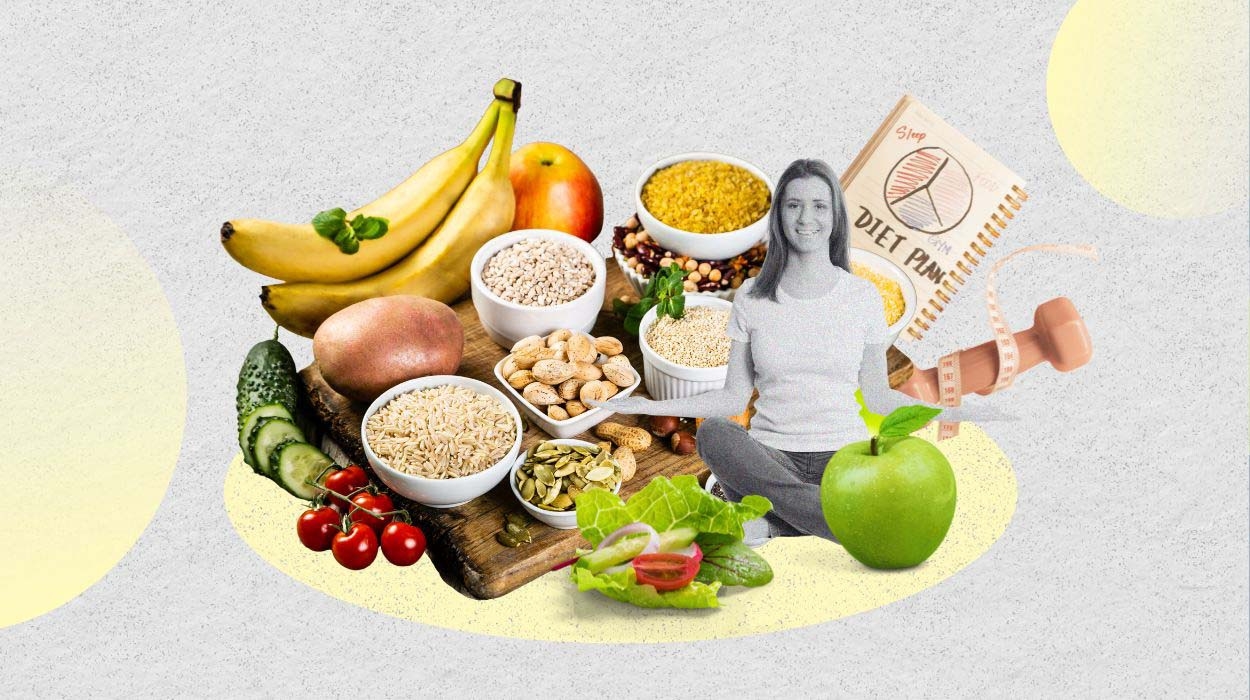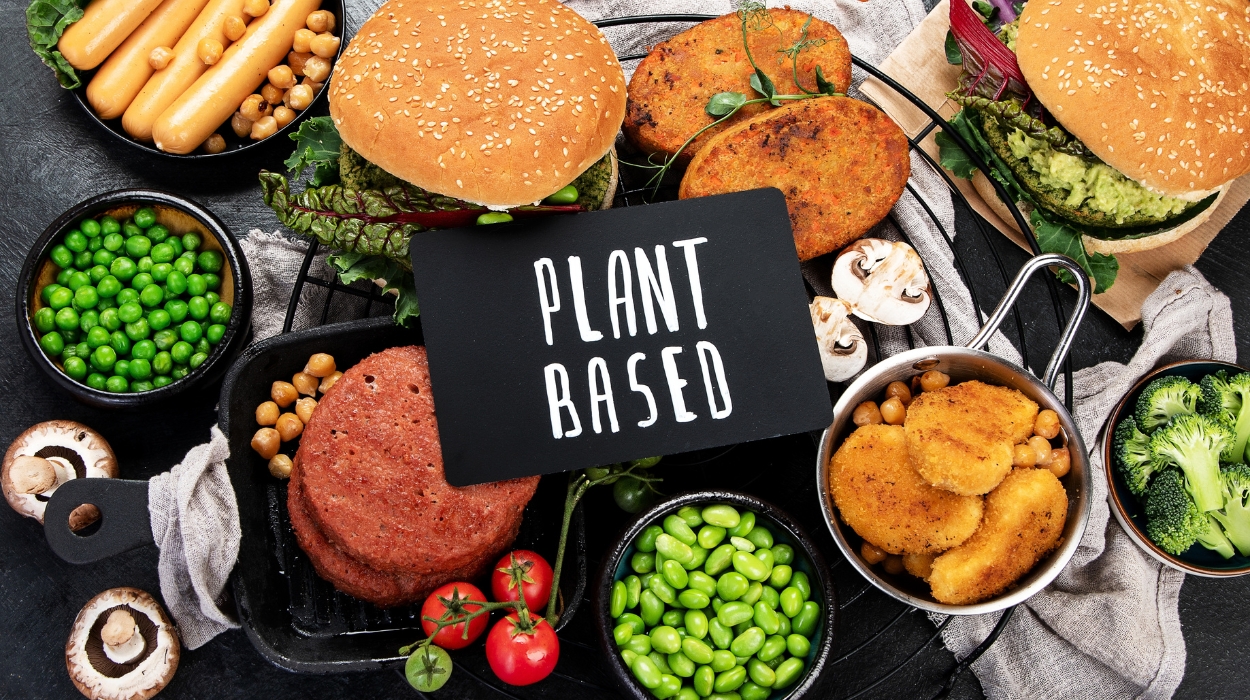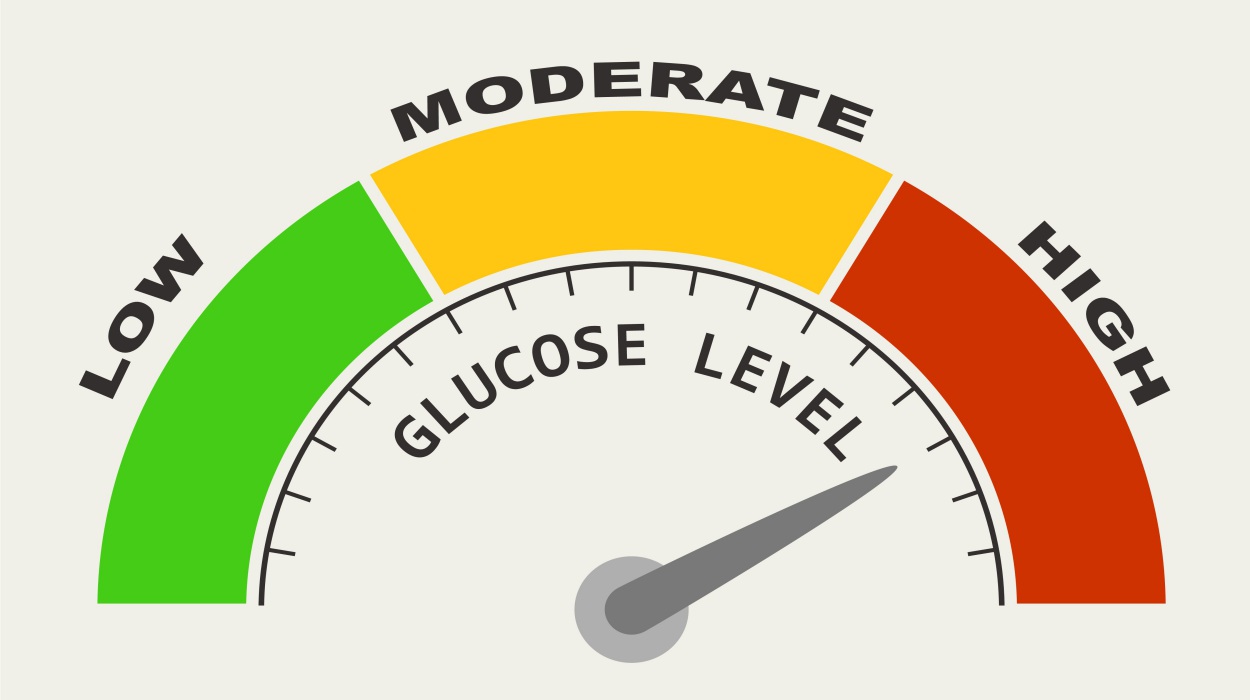 Expert's opinion
Expert's opinion
Expert's opinion
The article is a subjective view on this topic written by writers specializing in medical writing.
It may reflect on a personal journey surrounding struggles with an illness or medical condition, involve product comparisons, diet considerations, or other health-related opinions.
Although the view is entirely that of the writer, it is based on academic experiences and scientific research they have conducted; it is fact-checked by a team of degreed medical experts, and validated by sources attached to the article.
The numbers in parenthesis (1,2,3) will take you to clickable links to related scientific papers.
30-Day Plant-Based Diet Plan: How To Go Vegan In 2024

Going on a 30-day plant-based diet plan can be tasking, especially if you have not tried it before.
This guide will provide you with a practical and accessible approach to adopting a plant-based lifestyle for a month. You will explore a wide range of delicious, plant-based recipes that prioritize health and sustainability.
Whether you want to improve your well-being or manage your weight, this article will serve as your roadmap. Get ready to embrace plant-based foods, experience their benefits, and embark on a fulfilling journey toward better health.
Let’s dive in and discover the wonders of a 30-day plant-based diet meal plan.
30-Day Plant-Based Diet Plan For Weight Loss
If you’re looking for an example, here is a sample meal plan in a month for you. You can mix and match these dishes within each week or across the weeks. It will help create a varied and satisfying monthly plant-based meal plan.
Week 1: Plant-Powered Week Meal Plan (approx. 1610-2150 calories)
Welcome to a week of nourishing and satisfying plant-based meals that will support your journey towards a healthier and more sustainable lifestyle. This meal plan focuses on whole, plant-based foods that are delicious and packed with nutrients, making it easy to maintain a balanced diet throughout the week.
| Lentil Curry | |
| Cooked lentils | 1 cup |
| Diced tomatoes | 1/2 cup |
| Diced onions | 1/2 cup |
| Minced garlic | 1 clove |
| Curry powder | 1 tsp |
| Olive oil | 1 tsp |
| Chickpea Salad Wraps | |
| Chickpeas (canned, drained and rinsed) | 1 cup |
| Diced cucumber | 1/4 cup |
| Diced red bell pepper | 1/4 cup |
| Tahini dressing | 2 tbsps |
| Whole wheat or lettuce wraps |
| Quinoa Stuffed Bell Pepper | |
| Halved and seeded bell peppers | 2 |
| Cooked quinoa | 1 cup |
| Canned and drained black beans | 1/2 cup |
| Diced tomatoes | 1/2 cup |
| Diced red onion | 1/4 cup |
| Seasonings to taste (e.g., cumin, paprika) |
| Sweet Potato and Black Bean Burritos | |
| Hole wheat tortillas | 2 |
| Cooked sweet potatoes | 1 cup |
| Canned and drained black beans | 1 cup |
| Salsa or avocado for garnish |
| Spinach and Mushroom Stir-Fry | |
| Spinach leaves | 2 cups |
| Cooked quinoa | 1 cup |
| Sliced mushrooms | 1/2 cup |
| Minced garlic | 1 clove |
| Soy sauce or tamari | 1 tbsp |
| Olive oil | 1 tsp |
Week 2: Plant-Based Delights Week Meal Plan (approx. 1800-2450 calories)
Welcome to a week of delicious and satisfying plant-based meals that will nourish your body, support your health, and satisfy your taste buds. This meal plan emphasizes whole, plant-based foods to provide a variety of nutrients while celebrating the diverse flavors and textures of plant-based cuisine
| Vegan Pad Thai | |
| Rice noodles | 8 oz |
| Mixed vegetables (carrots, bell peppers, broccoli) | 2 cups |
| Cubed tofu | 1 cup |
| soy sauce (low-sodium) | 2 tbsps |
| Crushed peanuts | 1/4 cup |
| Mediterranean Chickpea Salad | |
| Drained and rinsed chickpeas | 1 can (15 oz) |
| Diced cucumber | 1 cup |
| Halved cherry tomatoes | 1 cup |
| Finely chopped red onion | 1/2 cup |
| Chopped fresh parsley | 1/4 cup |
| Olive oil | 2 tbsps |
| Juiced lemon | 1 |
| Veggie Lentil Soup | |
| Cooked green or brown lentils | 1 cup |
| Mixed vegetables (carrots, celery, zucchini) | 1 cup |
| Vegetable broth | 4 cups |
| Minced garlic | 2 cloves |
| Cauliflower Fried Brown Rice | |
| Cauliflower rice | 2 cups |
| Mixed vegetables (peas, carrots, bell peppers) | 1 cup |
| Scrambled tofu or tempeh | 1/2 cup |
| Low-sodium soy sauce | 2 tbsps |
| Vegan Lentil Bolognese | |
| Cooked brown or green lentils | 1 cup |
| Tomato sauce (low-sodium) | 2 cups |
| Diced onions | 1 cup |
| Diced bell peppers | 1 cup |
| Minced garlic | 2 cloves |
| Olive oil | 1 tbsp |
Week 3: Plant-Based Bliss Week Meal Plan (approx. 2200-2450 calories)
Welcome to a week of vibrant, flavorful, and nutrient-rich plant-based meals that will nourish your body and delight your taste buds. This meal plan embraces a variety of colorful vegetables, legumes, and whole grains to provide you with essential nutrients while keeping your taste buds satisfied.
| Roasted Vegetable Buddha Bowl | |
| Mixed roasted vegetables (e.g., sweet potatoes, broccoli, carrots) | 1 cup |
| Canned and rinsed chickpeas | 1/2 cup |
| Cooked quinoa | 1 cup |
| Tahini dressing | 2 tbsps |
| Zucchini Noodles with Pesto | |
| Medium zucchinis spiralized into noodles | 2 |
| Vegan pesto sauce | 1/4 cup |
| Halved cherry tomatoes | 1/4 cup |
| Toasted pine nuts | 2 |
| Vegan Chili | |
| Cooked kidney beans | 1 cup |
| Cooked black beans | 1 cup |
| Diced tomatoes (canned) | 1 cup |
| Diced bell peppers | 1/2 cup |
| Diced onions | 1/2 cup |
| Chili powder | 1 tbsp |
| Moroccan Chickpea Stew | |
| Cooked chickpeas | 1 cup |
| Diced butternut squash | 1 cup |
| Diced tomatoes (canned) | 1/2 cup |
| Couscous or quinoa | 1 serving |
| Chopped dried apricots | 1/4 cup |
| Moroccan spice blend | 1 tbsp |
| Roasted Cauliflower Tacos | |
| Roasted cauliflower florets | 8 |
| Whole wheat or corn tortillas | 2 cups |
| Garnish with fresh basil | 1 cup |
| Diced avocado | 1/2 cup |
| Vegan yogurt sauce | 2 tbsps |
Week 4: Plant-Powered Palate Week Meal Plan (approx. 2240-2450 calories)
Welcome to a week of delectable and nourishing plant-based meals that will tantalize your taste buds while supporting your health and well-being. This meal plan showcases a variety of colorful vegetables, legumes, and whole grains to provide you with essential nutrients and mouthwatering flavors.
| Sweet Potato and Lentil Curry | |
| Cooked lentils | 1 cup |
| Diced sweet potatoes | 2 cups |
| Coconut milk | 1 can (400ml) |
| Chopped onion | 1 |
| Minced garlic | 2 cloves |
| Curry powder | 2 tsps |
| Turmeric | 1 tsp |
| Quinoa Salad with Roasted Vegetables | |
| Cooked quinoa | 1 cup |
| Mixed roasted vegetables (e.g., bell peppers, zucchini, cherry tomatoes) | 2 cups |
| Chopped fresh parsley | 1/4 cup |
| Olive oil | 2 tbsps |
| Juiced lemon | 1 |
| Vegan Sloppy Joes | |
| Cooked lentils | 1 cup |
| Diced bell peppers | 1/2 cup |
| Diced onions | 1/2 cup |
| Tomato sauce | 1 can (200g) |
| Chili powder | 1 tsp |
| Whole wheat burger buns |
| Stuffed Portobello Mushrooms | |
| Large portobello mushrooms | 4 |
| Cooked quinoa | 1 cup |
| Chopped spinach | 1 cup |
| Diced tomatoes | 1/2 cup |
| Nutritional yeast | 1/4 cup |
| Olive oil | 1 tsp |
| Mexican Street Corn Salad | |
| Cooked corn kernels | 4 cups |
| Vegan mayonnaise | 1/4 cup |
| Chopped fresh cilantro | 1/4 cup |
| Diced red onion | 1/4 cup |
| Juiced lime | 1 |
Benefits Of The Vegan Diet
Plant-based diets offer a wide array of benefits that span across various aspects of our lives. Here are a few benefits of a plant-based diet:
- Nutrient-rich.
- Heart health.
- Weight management.
- Digestive health.
- Environmental sustainability.
- Animal welfare.
- Culinary exploration.
Foods You Can Eat On 30-Day Vegan Diet Weight Loss

A 30-day plant-based diet plan centers around consuming foods entirely of plant origin and free of animal product influences. It encompasses a diverse range of whole grains like brown rice, vegetables, fruits, nuts, and seeds. Here are examples of the types of foods you can enjoy on a plant-based diet that can aid in weight loss:
Vegetables
Try incorporating more vegetables in your diet; they are rich in essential vitamins and minerals,[1] as well as dietary fiber. Their wide range of flavors, textures, and colors make them great options for salads or cooked dishes like stir-fries or roasted vegetables.
Examples include butternut squash, kale salad, swiss chard, and Brussels sprouts.
Whole Grains
Whole grains are unprocessed, which means they contain more fiber,[2] vitamins, and minerals than refined grains. They provide sustained energy levels perfect for dishes like grain bowls, salads, or as a side dish.
Legumes
Try legumes for fantastic sources of protein,[3] fiber, and necessary nutrients. They can be incorporated into soups, stews, null curries, salads, or even used as alternatives to meat in many recipes.
Nuts And Seeds
Nuts and seeds are packed with healthy fats, protein, and minerals. They can be enjoyed as snacks, added to salads, used as toppings for yogurt, or incorporated into baked goods.
Plant-Based Milk
Add coconut milk, almond milk, soy milk, oat milk, and other non-dairy alternatives are examples of plant-based[4] milk. They provide a dairy-free option with varying flavors and textures. They can be used in cooking and baking or enjoyed on their own as a refreshing beverage.
Healthy Fats
Healthy fats are essential for our bodies and can be found in plant-based sources.[5] Examples are avocado, olive oil, coconut oil, sesame oil, canola oil, and nut butter ( i.e., natural peanut butter or almond butter). Avocado can be added to salads, while oils and nut butter can be used in cooking with medium-high heat.
Herbs And Spices
Herbs and spices enhance the taste of plant-based meals without adding excessive salt.[6] They offer a range of health benefits and can be used to season various dishes.
Plant-Based Proteins
Plant-based protein options are available as alternatives to animal products. They include seitan, vegan burgers, protein powder, vegan protein bars, and other plant-based protein products.
They can be enjoyed in moderation as part of a balanced plant-based diet, providing a protein source for various meals.
Incorporating these diverse plant-based food groups into your vegan diet ensures a wide range of nutrients and flavors to support a healthy diet and sustainable lifestyle.
Plant-Based Diet For Diabetes: Managing Blood Sugar Levels With A Vegan Meal Plan

In this plant-based diet for diabetes, should use coconut sugar focusing on nutrient-dense, fiber-rich foods that can help stabilize glucose levels and improve insulin sensitivity.
Individuals who have diabetes can also enjoy a plant-based diet. A well-balanced vegan meal plan can be beneficial for managing blood sugar levels.
To ensure you get all the necessary nutrients, consider adding specific supplements for a plant-based diet. Omega-3 fatty acids, vitamin B12, vitamin D, and iron may require supplementation, especially if they are not adequately obtained from plant-based food sources.
Additionally, you can add vegan protein bars to your meal plan for a convenient on-the-go snack. Look for bars with natural fresh ingredients, low sugar content, and a good balance of plant-based proteins.
Such additions can support your active lifestyle during this 30-day journey towards a healthier, plant-powered you.
When following a plant-based diet, here are some general rules to remember:
Emphasize Whole Foods
Focus on consuming whole, minimally processed plant-based foods such as fruits, vegetables, whole grains, legumes, nuts, and chia seeds. They are good sources of nutrients and fiber.
Include A Variety Of Plants
Aim for a diverse range of whole grains, fruits, and veggies, to ensure you get the necessary vitamins and minerals.
Minimize Processed Foods
Limit or avoid processed foods like vegan meat substitutes, packaged snacks, and desserts. These dairy products can be high in added sugars,[7] processed oils, artificial sweeteners, and other additives.
Focus On Nutrient Density
Opt for nutrient-dense foods, meaning they provide a high amount of nutrients relative to their calorie content. This includes leafy greens, cruciferous vegetables, berries, whole grains, and legumes.
Meal planning may start with a talk with a registered dietitian nutritionist to help you with the best plan for a balanced diet.
Watch Portion Sizes
While plant-based foods tend to be lower in calories, portion control is still important. Be mindful of how much eating plant-based to maintain healthy blood sugar levels and weight management.
Ensure Adequate Protein Intake
You should include plant-based protein sources like legumes, tofu, tempeh, seitan, and quinoa to meet your protein needs. Combining different plant protein sources[8] throughout the day can help ensure you get all essential amino acids since most plant sources are incomplete proteins.
Maintain Adequate Hydration
Ensure you stay hydrated by consuming ample amounts of water throughout the day. This will aid in digestion and contribute to your overall well-being. Adequate hydration comes from water and fluids in milk, lemon juice, fruits, etc.
According to Harvard Health, aim for 11.5 cups per day if you are a woman and 15.5 cups per day if you are a man.
Consider Nutritional Supplements
While a well-planned, 30-day plant-based diet plan can provide most of the nutrients you need, certain dietary supplements like vitamin B12 and vitamin D may be necessary. Consult with a registered dietitian to know more.
Everyone’s dietary needs and preferences vary, so it is essential to listen to your body. You should also adjust the plant-based diet accordingly to meet your individual requirements.
Conclusion
Embarking on a 30-day plant-based diet plan can be a transformative experience for your health. Focusing on whole plant foods and exploring a variety of vegan recipes can help you nourish your body with loads of nutrient-rich ingredients.
This journey will allow you to discover the potential of plants in supporting weight loss and improving overall well-being. As you choose this plant-based path, make mindful choices, embrace its diversity, and strive for a sustainable lifestyle.
Your 30-day journey is just the beginning of a lifelong commitment to nourishing yourself and the world around you through plant-based living.
Frequently Asked Questions
Weight loss on a plant-based diet varies, but a realistic expectation is around 4-8 pounds over a 30-day time period if you are in a daily calorie deficit.
Beyonce’s 22-day diet is a plant-based meal plan designed by Marco Borges that focuses on whole foods and excludes meat, dairy, and processed foods.
No, eggs are not considered part of a plant-based diet as they are derived from animals. A plant-based diet eliminates the consumption of all animal-derived products.
While a strict plant-based diet excludes meat, some individuals may follow a flexitarian approach and occasionally include small amounts of meat.
Yes, plant-based protein sources such as legumes, tofu, tempeh, and quinoa offer abundant protein if adequately combined throughout the day to get all essential amino acids.
Absolutely; numerous athletes excel on plant-based diets, as they provide the essential nutrients for optimal performance and recuperation.
With proper planning, a plant-based diet can be nutritionally adequate for children, but ensuring they receive all essential nutrients is crucial for their continued growth.
Certainly, plant-based diets have been shown to reduce the chances of heart disease, type 2 diabetes, and specific cancers when maintained consistently.
+ 8 sources
Health Canal avoids using tertiary references. We have strict sourcing guidelines and rely on peer-reviewed studies, academic researches from medical associations and institutions. To ensure the accuracy of articles in Health Canal, you can read more about the editorial process here
- Pem, D. and Jeewon, R. (2015). Fruit and Vegetable Intake: Benefits and Progress of Nutrition Education Interventions- Narrative Review Article. Iranian journal of public health, [online] 44(10), pp.1309–21. Available at: https://www.ncbi.nlm.nih.gov/pmc/articles/PMC4644575/
- Wei, X., Yang, W., Wang, J., Zhang, Y., Wang, Y., Long, Y., Tan, B. and Wan, X. (2022). Health Effects of Whole Grains: A Bibliometric Analysis. [online] 11(24), pp.4094–4094. doi:https://doi.org/10.3390/foods11244094.
- Polak, R., Phillips, E.H. and Campbell, A.E. (2015). Legumes: Health Benefits and Culinary Approaches to Increase Intake. [online] 33(4), pp.198–205. doi:https://doi.org/10.2337/diaclin.33.4.198.
- Sethi, S., Tyagi, S.K. and Anurag, R.K. (2016). Plant-based milk alternatives an emerging segment of functional beverages: a review. [online] 53(9), pp.3408–3423. doi:https://doi.org/10.1007/s13197-016-2328-3.
- Field, C.J. and Robinson, L.E. (2019). Dietary Fats. [online] 10(4), pp.722–724. doi:https://doi.org/10.1093/advances/nmz052.
- Anestis Dougkas, Vannereux, M. and Agnès Giboreau (2019). The Impact of Herbs and Spices on Increasing the Appreciation and Intake of Low-Salt Legume-Based Meals. [online] 11(12), pp.2901–2901. doi:https://doi.org/10.3390/nu11122901.
- Carlos Augusto Monteiro, Larissa Galastri Baraldi, Laura, M., Jean-Claude Moubarac and Dariush Mozaffarian (2016). Ultra-processed foods and added sugars in the US diet: evidence from a nationally representative cross-sectional study. [online] 6(3), pp.e009892–e009892. doi:https://doi.org/10.1136/bmjopen-2015-009892.
- Laurianne Dimina, Didier Rémond, Jean-François Huneau and Mariotti, F. (2022). Combining Plant Proteins to Achieve Amino Acid Profiles Adapted to Various Nutritional Objectives—An Exploratory Analysis Using Linear Programming. [online] 8. doi:https://doi.org/10.3389/fnut.2021.809685.



